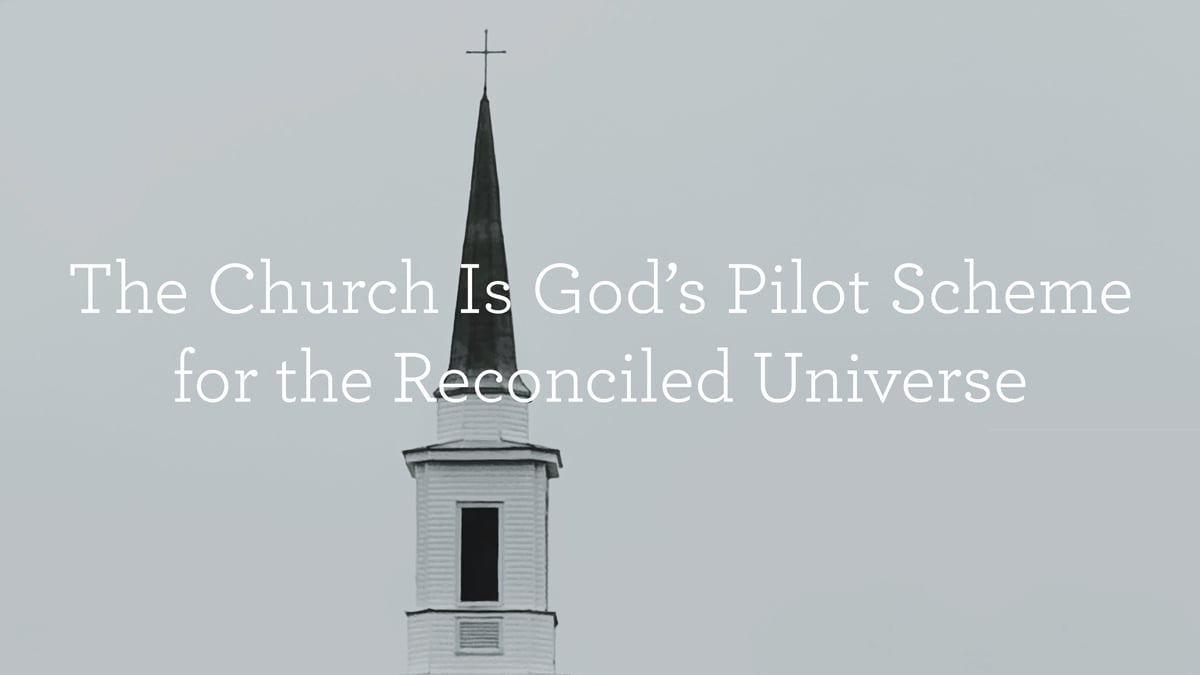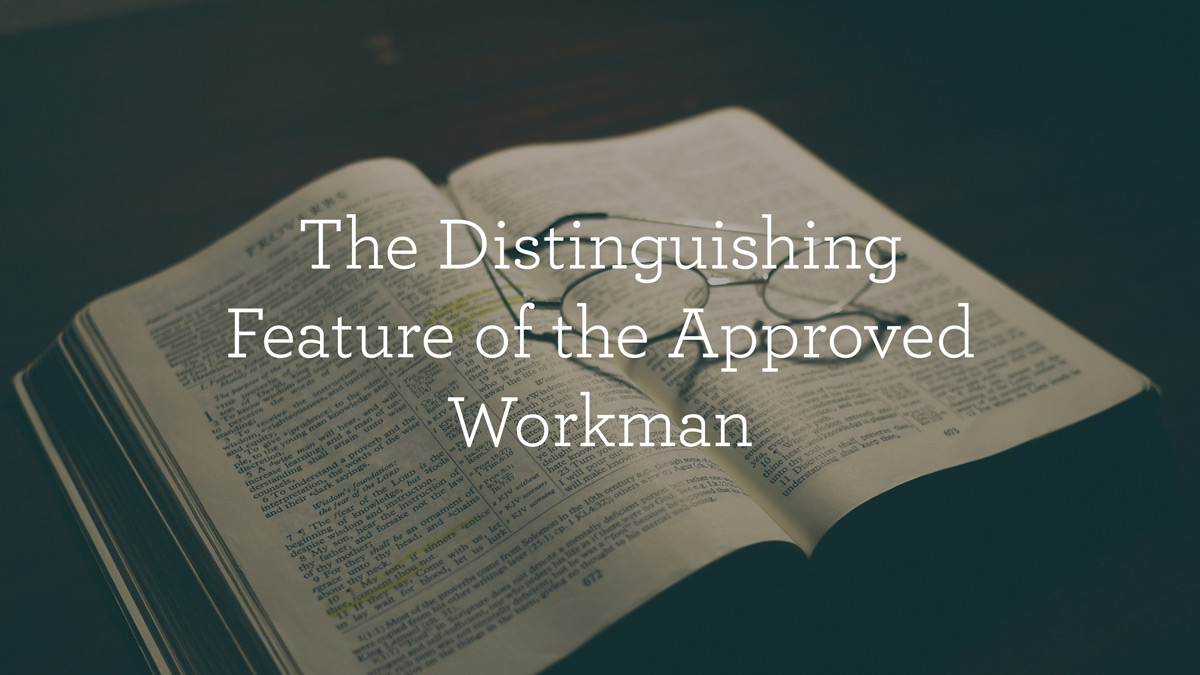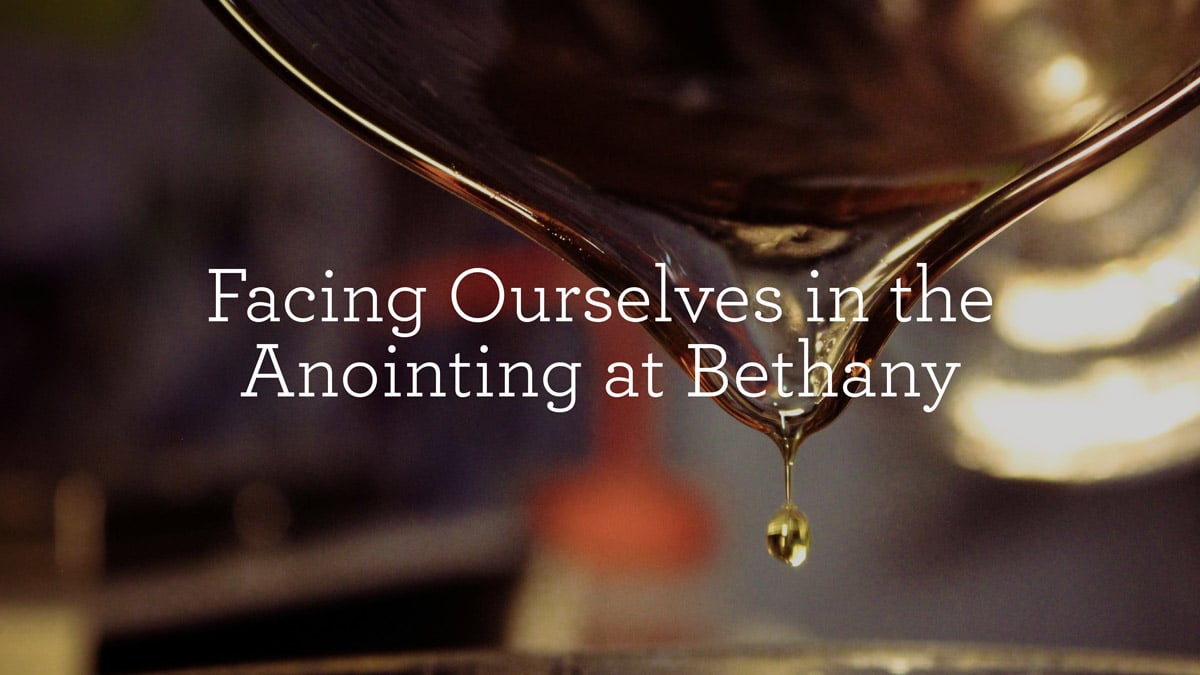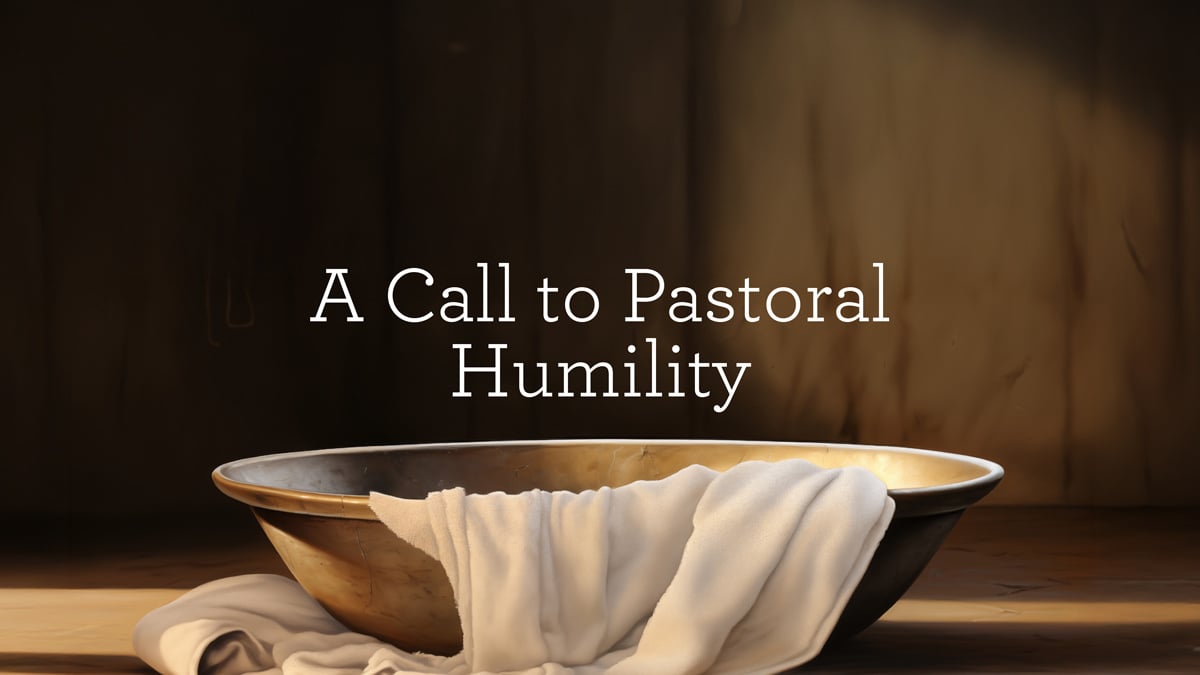The Church Is God’s Pilot Scheme for the Reconciled Universe
Writing to the Christians of first-century Rome, the apostle Paul acknowledged that creation, believers, and even the Spirit Himself groan in hopeful anticipation of final renewal. Present suffering is real, Scripture affirms—but it is eclipsed by the promised glory to come. In his sermon “Groaning and Glory,” Alistair Begg traces the inseparable link between suffering and glory in God’s redemptive purpose, reminding us that the Spirit sustains believers in weakness and that God is at work in all things for our ultimate good:
Topics: From the Archives
Trust God and Get Going!
Genuine Christianity is not just a new set of beliefs or even a new pattern of behavior; it’s a matter of new belonging. After declaring the glorious truth that there is “now no condemnation for those who are in Christ Jesus,” the apostle Paul called his Roman readers to live “not in the flesh but in the Spirit.” In the message “Living in the Spirit,” Alistair Begg examines the reality and results of the Spirit’s presence in the life of the believer—as well as the responsibility that falls to those who are in Christ:
Topics: From the Archives
The Real Question: Are You “in Christ”?
The seventeenth-century minister Thomas Jacomb once wrote of Romans 8, “From first to last, it is high gospel.”[1] Beginning with “no condemnation” and ending with the assurance that nothing can separate us from God’s love, it is one of the most magisterial and encouraging chapters in all of Scripture. In his message “No Condemnation in Christ,” Alistair Begg begins a short tour through its profound depths, helping us to grasp the solution to the predicament of sin, the relationship between freedom and the law, the call to walk in newness of life by God’s Spirit—and, in this excerpt, the significance of being “in Christ”:
Continue reading …Topics: From the Archives
The Distinguishing Feature of the Approved Workman
“What’s it like to work just one day a week?” While many pastors find themselves on the receiving end of such questions, the reality is that as Gospel workers, pastors know their jobs are never really finished. As Alistair Begg notes in his sermon “Pastoral Responsibilities,” Paul’s instructions to his protégé Timothy make clear that the church is always in need of pastors who will study God’s Word diligently so they can remind their congregations of the essentials of the faith and present themselves to God as ones approved:
Continue reading …Topics: From the Archives
3 Ways to Keep Yourself in God’s Love
Having urged his readers to contend for the faith and learn from the past, Jude used the closing section of his letter to call them to remembrance, perseverance, and mercy. As Alistair Begg reminds us in the sermon “Keeping and Remembering,” while our salvation is grounded in the work of Christ, the evidence of our salvation is in our continuance. Looking to the Puritan writer William Jenkyn for guidance, Alistair points out three practical ways we can follow Jude’s instruction to “keep yourselves in the love of God” (v. 21):
Continue reading …Topics: From the Archives
Are You Contending or Contentious?
When Jude wrote to the Christians of his day, he wanted to focus on their common salvation—but instead, he found it necessary to urge them to “contend for the faith that was once for all delivered to the saints.” In the sermon “A Call to Contend,” Alistair Begg surveys the warm greeting, necessary appeal, and chilling reminder in this neglected letter’s opening verses. While church history makes clear that periods of declension are inevitable, Jude’s careful, protective tone reminds us to resist the urge to turn contending into contentiousness:
Continue reading …Topics: From the Archives
5 Consequences of a Jealous Heart
The sin of jealousy is often tolerated in Christian circles—but our lenience doesn’t make it any less serious. The Bible is clear: Jealousy is a grave matter. In a talk given to seminary students called “Regarding Jealousy,” Alistair Begg surveys jealousy’s consequences, which can only be overcome as we acknowledge our transgression before God and keep our eyes fixed on Christ:
Continue reading …Topics: From the Archives
Facing Ourselves in the Anointing at Bethany
In Mark 14, we read that as the time for Jesus’ crucifixion drew near, a woman came to Him and anointed His head with an alabaster flask of precious oil. While this heartfelt act of worship provoked the disciples’ disapproval, Jesus celebrated her extravagant devotion. In the sermon “‘A Beautiful Thing,’” Alistair Begg surveys the woman’s action, the disciples’ reaction, and Jesus’ commendation, helping us to see that the only true pathway to lasting honor is to honor Christ:
Continue reading …Topics: From the Archives
A Call to Pastoral Humility
As he drew his first epistle to a close, the apostle Peter turned his focus to the elders of the churches to which he wrote, urging them to lead their people with godliness. Elders and pastors are shepherds over God’s flock, Alistair Begg reminds us—ones who should lead by example, cultivating humility, entrusting God with their anxieties, preparing to face adversity, and resting in the security of God’s grace. In “Standing Firm in the Grace of God,” Alistair helps to understand what true, godly humility looks like:
Continue reading …Topics: From the Archives
We Don’t Know When Christ Will Return. We Do Know How.
In the fourth chapter of his first epistle, in light of all that he’d written up to that point, Peter continued to unpack how the reality of Christ’s sacrifice should shape the day-to-day of the Christian life. Living under the shadow of the cross, Alistair Begg explains, means thinking properly, living differently, and being prepared to face abuse—even as we keep our eyes fixed on the end:
Continue reading …Topics: From the Archives









